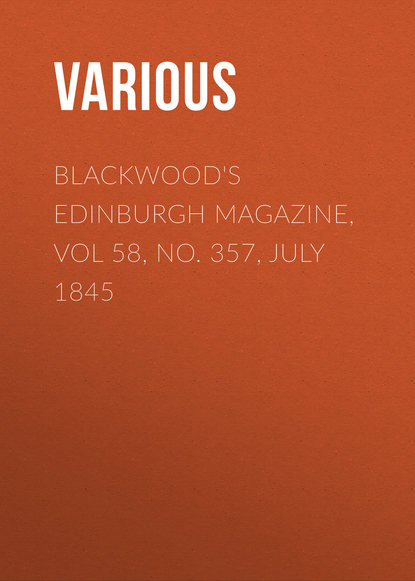По всем вопросам обращайтесь на: info@litportal.ru
(©) 2003-2024.
✖
Blackwood's Edinburgh Magazine, Vol 58, No. 357, July 1845
Автор
Год написания книги
2017
Настройки чтения
Размер шрифта
Высота строк
Поля
They did not lend, they gave outright to the poor scholar.
The Reve's Prologue opens thus in Chaucer —
"Whan folk han laughed at this nicè cas
Of Absalom and hendy Nicholas."
Mr Horne says —
"Of Absalom and credulous Nicholas!"
He manifestly mistakes the sly scholar for the credulous carpenter, whom on the tenderest point he outwitted! To those who know the nature of the story, the blunder is extreme.
What is to be thought of such rhymes as these?
"And for to drink strong wine as red as blood,
Then would he jest, and shout as he were mad."
"Toward the mill, the bay nag in his hand,
The miller sitting by the fire they found."
"And on she went, till she the cradle found,
While through the dark still groping with her hand."
These to our ears, are not happy modernizations of Chaucer.
Here come a few more Cockneyisms.
"Alas! our warden's palfrey it is gone.
Allen at once forgot both meal and corn."
"Allen stole back, and thought ere that it dawn,
I will creep in by John that lieth forlorn."
"For, from the town Arviragus was gone,
But to herself she spoke thus, all forlorn."
"Aurelius, thinking of his substance gone,
Curseth the time that ever he was born."
"An arm-brace wore he that was rich and broad,
And by his side a buckler and a sword."
"Now grant my ship, that some smooth haven win her;
I follow Statius first, and then Corinna."
Alas! this worst of all is Elizabeth Barrett's! "Well of English undefiled!"
In Chaucer we have —
"A Sergeant of the Lawè, ware and wise,
That often hadde yben at the Parvis."
Mr Horne gives us —
"A Sergeant of the Law, wise, wary, arch!
Who oft had gossip'd long in the church porch."
The word "arch" is here interpolated to give some colour to the charge of "gossiping," absurdly asserted of the learned Sergeant. The Parvis was the place of conference, where suitors met with their counsel and legal advisers; and Chaucer merely intimates thereby the extent of the Sergeant's practice. In Chaucer we have —
"In termès hadde he cas and domès alle
That fro the time of King Will. weren falle."
Who does not see the propriety of the customary contraction, King Will.? Mr Horne does not; and substitutes, "since King William's reign."
Of the Frankelein Chaucer says, he was
"An housholder, and that a gret was he;"
the context plainly showing the meaning to be, "hospitable on a great scale." Mr Horne ignorantly translates the words,
"A householder of great extent was he."
In Chaucer we have —
"His table dormant in his halle alway
Stood ready covered all the longè day."
The meaning of that is, that any person, or party, might sit down, at any hour of the day, and help himself to something comfortable, as indeed is the case now in all country houses worth Visiting – such as Buchanan Lodge. Mr Horne stupidly exaggerates thus —
"His table with repletion heavy lay
Amidst his hall throughout the feast-long day."
In the prologue to the Reve's Tale, the Reve, nettled by the miller, who had been satirical on his trade, says he will
"somdel set his howve
For leful is with force force off to showve."
"Howve" is cap – and in the Miller's Prologue we had been told
"How that a clerk had set the wrightès cappe;"
that is, "made a fool" of him – nay, a cuckold. Mr. Horne,
"Though my reply should somewhat fret his nose."
In Chaucer the Reve's tale begins with
"At Trumpington, not far from Cantebrigge,











